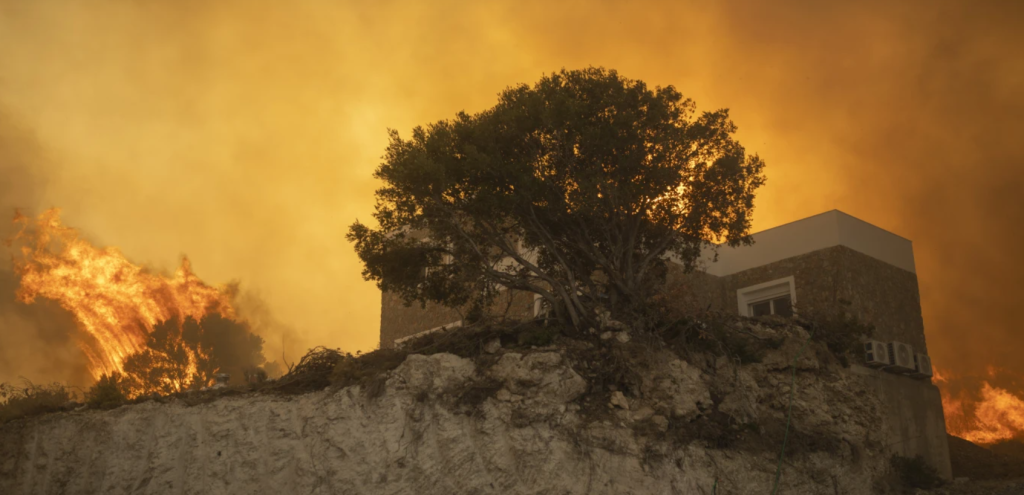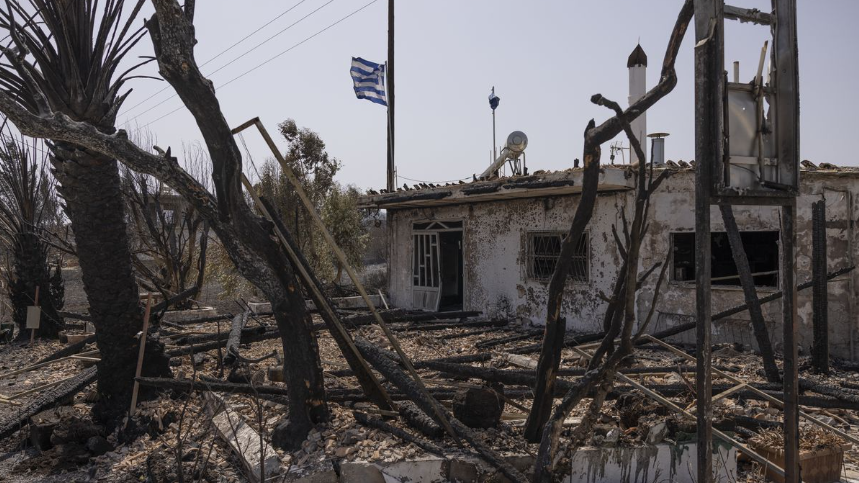As tourists start to trickle back to the Greek island of Rhodes, officials have started to count the cost of July’s deadly fires on human lives, livestock and the environment.
According to an initial estimate by the Ministry of Rural Development and Food, some 50,000 olive trees and 2,500 animals and beehives were destroyed in the recent fires on Rhodes.
Most of the damage to the island’s plant capital was in the areas of Apollona, Asklipio, Gennadi and Vati.
The Greek island also saw Greece’s largest ever evacuation operation, with more than 20,000 tourists and locals fleeing seaside hotels and houses.

This month, fires have been raging across Greece, including on Rhodes and Corfu, as well as outside the capital Athens. Five people have died in the fires, including two firefighter pilots.
The fires were fuelled by three consecutive heat waves, dry conditions and strong winds, causing chaos at the peak of the summer tourist season in Greece.
Greece’s Minister of Climate Crisis and Civil Protection Vassilis Kikilias also confirmed on Saturday that most of the 667 fires that erupted across Greece in recent weeks were started “by human hand.”
The fires in Greece abated on Friday after burning for nearly two weeks but emergency services worked over the weekend to prevent new flare-ups in the central part of the country, where people had fled massive explosions at an ammunition depot the day before.
Source: Ekathimerini, The Guardian.

